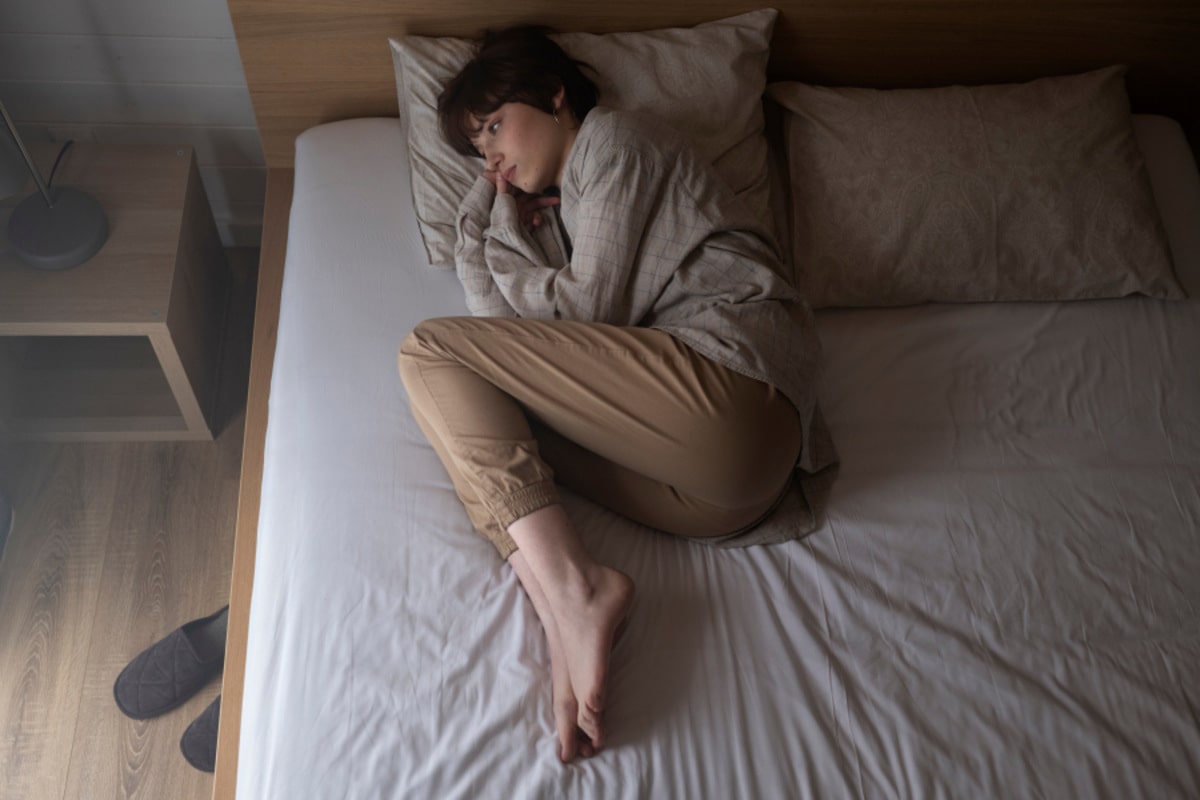
Photo Credit: Freepik.com
The Crucial Link Between Sleep and Mental Health: How Sleep deprivation Impacts your Well-being
Adequate Sleep is essential for emotional stability. Lack of sleep skews our ability to regulate emotions, potentially increasing the risk of mental health conditions like anxiety and depression. In turn, these conditions can further disrupt sleep, creating a cycle of distress. As Shakespeare aptly described, sleep is “nature’s soft nurse”, providing much-needed rest for emotional well-being.
The Two-way link between Sleep and Mental Health
Sleep problems are not only a result of mental health disorders but also contribute to their development. Studies show that insomnia, for instance, is linked to a higher risk of depression, bipolar disorder, and anxiety. In severe cases, insomnia is associated with an increased risk of suicide This two-way relationship means that sleep disturbances and mental health issues often feed into each other, creating a downward spiral that aggravates both.
Cognitive and Physical Health Benefits: Sleep is critical for cognitive functions like memory, attention, and learning. A lack of sleep impairs decision-making, problem-solving, and emotional regulation, affecting productivity and social interactions. Additionally, sleep plays a vital role in physical health. It helps the body repair tissues, regulate hormones, and strengthen the immune system. Chronic Sleep deprivation can lead to conditions like type 2 diabetes, heart disease, and obesity.
The Impact of Technology on Sleep: In today’s digital age, technology significantly interferes with sleep. The allure of social media, streaming services, and video games often keeps people awake late into the night. This increased screen time, especially before bed, disrupts sleep cycles and affects overall health. Despite guidelines from the CDC recommending 7 to 9 Hours of sleep per night.
Sleep Deficiency and Daytime Functioning: Sleep Deprivation leads to daytime sleepiness which impairs work, school, and social functioning. Symptoms include difficulty concentrating, slower reaction times, and more mistakes. Sleep-deprived individuals may struggle with everyday tasks, such as reading, driving, or engaging in conversations. In children, sleep deficiency can result in impulsivity, mood swings, and poor academic performance.
Children and Sleep: Sleep problems in children manifest differently than in adults. Sleep-deprived children may become overly active, have trouble paying attention, or exhibit behavioral problems. This can negatively impact their school performance, social relationships, and overall development. Addressing sleep issues early can help prevent long-term academic and emotional struggles.
Sleep and Depression: The relationship between sleep and depression is particularly concerning. People with depression often experience sleep problems, such as difficulty falling or staying asleep. Similarly, poor sleep can lead to difficulties in emotional regulation, making individuals more vulnerable to depression. Understanding this connection is key to early intervention and treatment for those struggling with both conditions.
Sleep Enough: Key to Well-Being
Sleep is fundamental to both mental and physical health. While sleep deprivation can impair cognitive and emotional functioning, it can also contribute to the onset of serious health conditions. Prioritizing good sleep hygiene and addressing sleep problems early can improve mental health, enhance cognitive abilities, and promote physical well-being.
Sleep is a cornerstone of mental and physical well-being, directly influencing emotional stability, cognitive function, and overall health. At ImPerfect, we recognize the intricate link between sleep and mental health, where disturbances in one can exacerbate the other. Our team of expert psychologists works with individuals to address sleep-related challenges, offering evidence-based strategies like cognitive behavioral therapy, mindfulness, and lifestyle adjustments to improve sleep quality. By fostering better sleep habits, we aim to break the cycle of sleep deprivation and mental health struggles, empowering individuals to lead healthier, more balanced lives. A good night’s sleep is the foundation for resilience and emotional well-being.
By Urveez Kakalia and Krupa Abraham
Reference:
1. https://www.medicalnewstoday.com/articles/sleep-and-mental-health#How-does-CBT-for-insomnia-work
2. https://www.nhlbi.nih.gov/health/sleep-deprivation/health-effects
Further Reading:
Cheon, Y. M. (2024). Understanding the link between sleep and mental health. Frontiers in Sleep, 3, 1498365.
Scott, H., & Woods, H. C. (2019). Understanding links between social media use, sleep and mental health: recent progress and current challenges. Current sleep medicine reports, 5, 141-149.
Zochil, M. L., & Thorsteinsson, E. B. (2018). Exploring poor sleep, mental health, and help‐seeking intention in university students. Australian journal of psychology, 70(1), 41-47.
